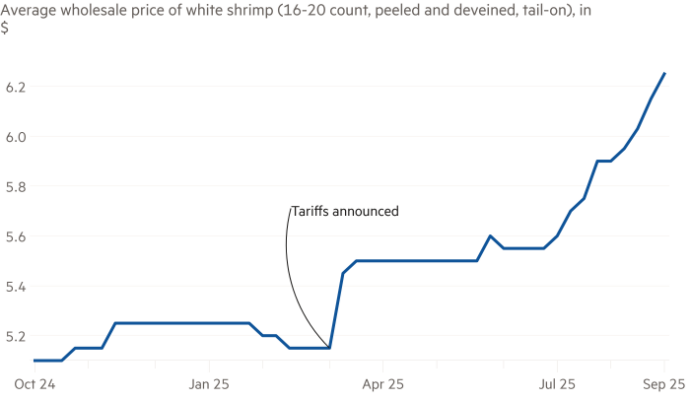
Stay informed with free updates
Simply sign up to the Chinese politics & policy myFT Digest — delivered directly to your inbox.
China has prevented a Wells Fargo banker from leaving the country, the American bank said, adding to concerns about travel there as tensions with Washington remain high.
A Wells Fargo spokesperson said the bank was “closely tracking this situation and working through the appropriate channels so our employee can return to the United States as soon as possible”. The reasons for the exit ban are unclear.
The case comes as geopolitical tensions strain US-China relations. President Xi Jinping’s trade negotiators in the coming weeks will seek to hammer out a final trade deal with the US to avoid President Donald Trump raising tariffs on China.
Chinese authorities have in recent years applied travel bans to foreigners involved in ongoing investigations or business disputes, preventing them from leaving until their cases are resolved.
There is no evidence the ban is related to Wells Fargo. The US bank’s operations in China are limited, with fewer than 100 employees spread across branches in Beijing and Shanghai, according to business records. It has a bigger presence in Hong Kong, where it offers lending and trade-related services.
Growing use of travel restrictions has led the US state department to advise travellers to exercise heightened caution when visiting China, warning about the arbitrary enforcement of local laws, including exit bans.
A senior banker at Nomura, Charles Wang Zhonghe, was subjected to an exit ban that confined him to mainland China for several months before he was allowed to leave last year.
This latest case will increase concerns among the international business community about travelling to China. It comes as Chinese authorities have been actively promoting foreign visits following the easing of pandemic restrictions, including offering visa-free travel arrangements for citizens of an expanding list of countries.
At the same time, China’s security apparatus has stepped up policing of perceived national security threats, including by broadening a counter-espionage law and clamping down on companies carrying out due diligence and business intelligence activities in the country.
A Beijing court on Wednesday sentenced a Japanese pharmaceutical executive to three and a half years in prison on espionage charges, without publicly disclosing the evidence against him.
The Ministry of State Security in April detained three Filipino citizens, alleging they had been sent to China on covert intelligence missions — claims the Philippine government strongly denied.
One of the detained Filipinos was a young man who had been studying in China and had been travelling around the country visiting temples and food markets. China’s foreign ministry did not immediately respond to a request for comment.


